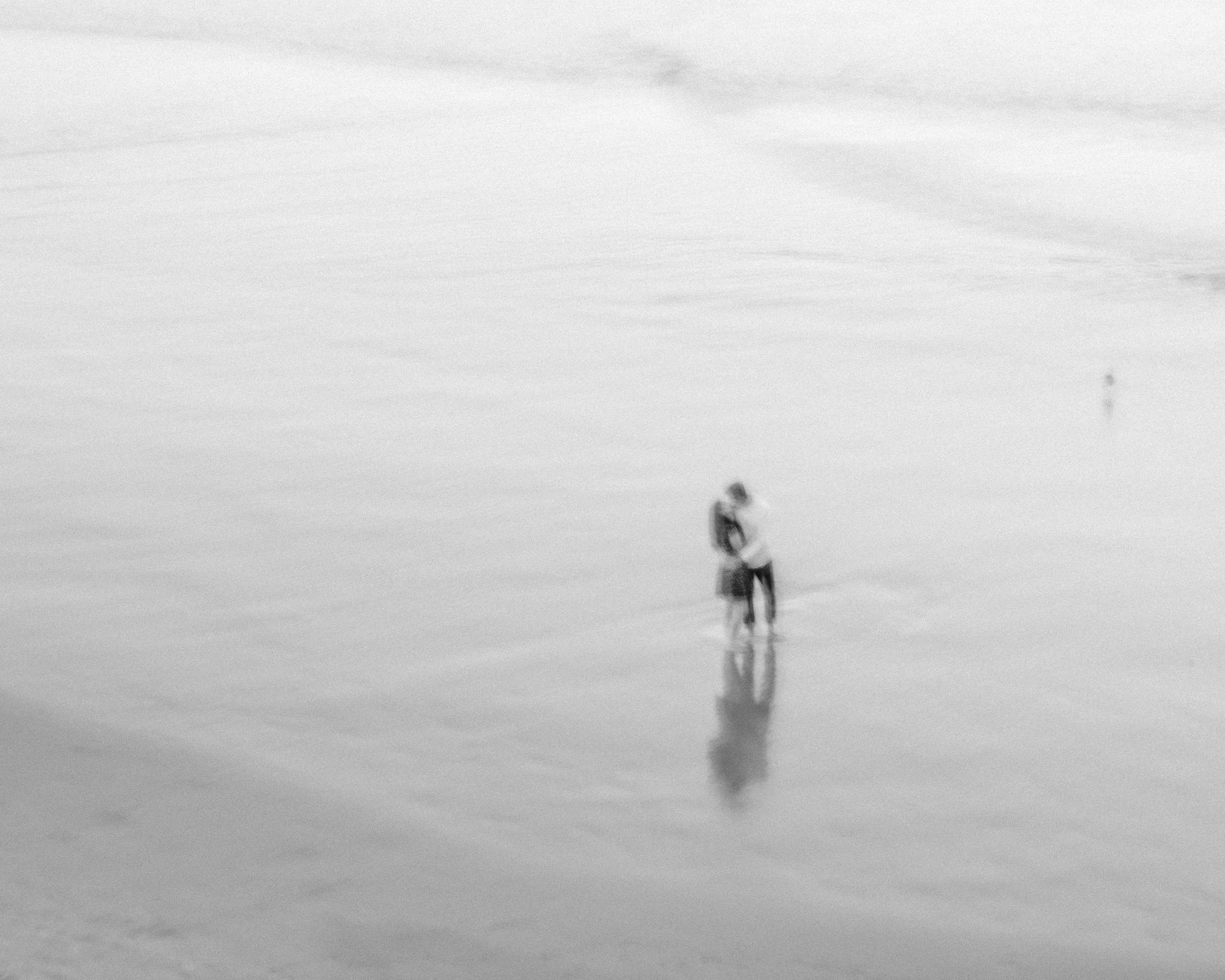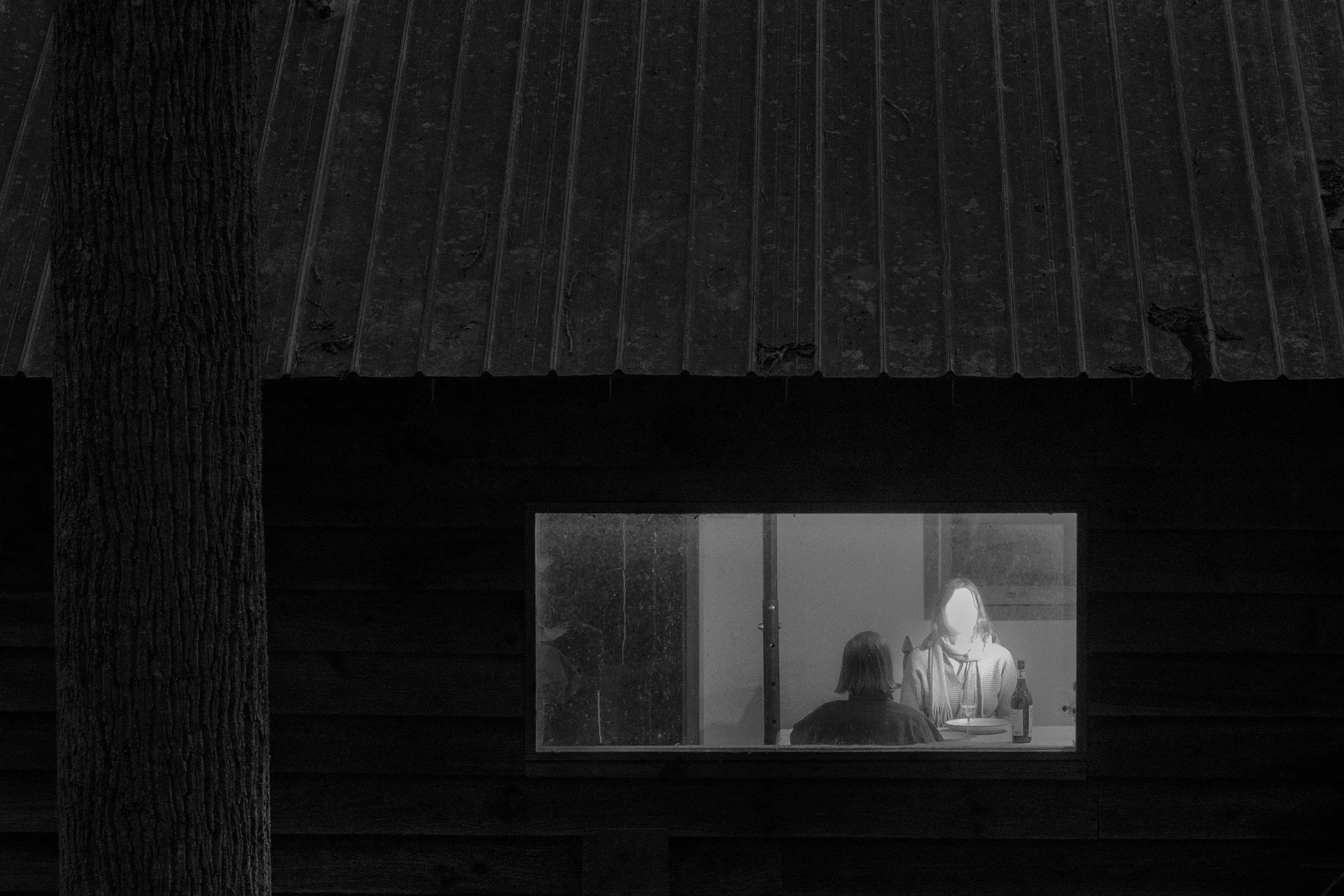A familiar, sacred landscape can also be an eraser of memory, like the inventors in Eternal Sunshine had crafted. But to erase your memory, you need not submit yourself to a sketchy mind-altering biotech firm. You can simply go back to the places where you feel most like yourself and you can slowly become yourself again, unencumbered, undestroyed. In a familiar, sacred landscape, you can remember this is who I am now because I have always been this way. The rocks only know that part of you; the lake just knows to envelop the animal that has plunged into its cold.
Or, to quote Leopold Bloom, who could have used a session from Lacuna, Inc. when he found out Molly had been fucking around with Blazes Boylan: Me. And me now.
You. Now.
Here, among these ancient rocks, there is no other you. There is only you.
• • • •
I remember once, a few years ago, when X and I had split up for the first time—she had fallen in love with someone else at the end of 2019—I was talking to my therapist. I was telling her that everyone who knew me well—family, friends—were urging me not to get back together with X. (I eventually did, just as the pandemic broke out in Los Angeles.) My friends had heard all my woes—listened to me whine and sob and moan and rage—and they knew the relationship had grown toxic, perhaps dangerous, definitely strange.
“But,” I said to my therapist, who I’d just begun to see, “I also have all these good memories of X. Things nobody knows about. These inside jokes that made us laugh until we cried, these beautiful vistas, these moments of complete and embarrassing intimacy and dread. This inner life we weaved together. The blurred boundary between us. Who is who? It’s like I am carrying them around in a suitcase. And I have this heavy suitcase of things, good things, that I want to remember. But I have nobody I can show them to. I have nobody who wants to look inside the suitcase. It is something I carry around. It is a weight I carry with me everywhere, a happy weight, but, if our marriage is over, it becomes an almost shameful weight.”
She didn’t say anything for a long time after that.
• • • •
The first time I watched Eternal Sunshine, the first two times, really, I was obsessed with the question: will Joel and Clementine get back together? This seemed to me to be the point of the film, the narrative arc that mattered most, that held the most emotional suspense.
But one of the many brilliant structural moves at play in Eternal Sunshine is that the audience doesn’t learn the reason that Joel and Clementine broke up until very late in the film. This question—why did they split up anyway? —adds a suspenseful arc to the often-non-linear narrative, turning backstory itself into a mysterious subplot. The need to know the answer to that question propels us forward.
When I was re-watching the film in my living room, twenty years later, my son, then sixteen, came up from the basement fifteen minutes into the film and asked me what I was watching. As I often do when he arrives in the living room mid-way through a movie, I paused the movie and tried to get him up to speed, because sometimes he will sit down and watch the film with me.
After I had summarized the film’s first act for him, he asked, “So, why did they break up in the first place?”
I didn’t know, I said, because I didn’t remember the ending of the film at all. How could that be? I remembered so many of the moody and immersive and abrupt scenes, and I remember how the film made me feel, a feeling so intense I saw it twice in the same day, but I had no recollection of the ending.
So, even though my son quickly grew bored with the film and went back down to the basement where his friends were playing video games, I watched the rest of the film with a real sense of suspense, one that is rare for a rewatch: Will they or won’t they get back together? How does this end?
But there was an even more interesting question to me this time around as well: Why did they break up in the first place? Without remembering the answer, I found it hard to know which ending to root for.
The answer to the question (why did they break up?) finally comes at the end of act two, when a disgruntled employee of Lacuna Inc. mails Joel and Clementine cassette tapes of their intake interview, along with a letter explaining to them that they had undergone memory-erasing procedures so that they would completely forget one another.
This is what we hear from Clementine’s tapes (dialogue that is in the finished film but not in the official screenplay): “I don’t like myself when I am with him. I don’t like myself anymore.”
When I heard that line this time, I thought, well, yes, that’s it. The reason you want to erase the memories of a love affair gone bad is often not the pain of the relationship, nor the difficulty of moving on after it ends. The reason you would say yes to the question at the core of Eternal Sunshine—yes, I would forget my ex if I could—is that you often don’t like yourself in a relationship that goes bad.
You remember not only the ways that you were hurt, but also the ways you did the hurting.
You remember not only the intensity of your love, but also the inauthentic moments when you performed that love.
You remember not only the unhinged vulnerability of intimacy, but also the moments when you refused to be vulnerable.
In relationships that are going bad, you become unrecognizable to yourself. You become a person you don’t like.
I didn’t like myself by the end of my second marriage.
And that’s why I would like to forget it. It wasn’t about the suitcase.
• • • •
I paused and rewatched this break-up reveal many times, listening to Clementine explain what she hated about Joel, why she wanted to leave him. She was cruel in her assessment of him, mean and full of rage.
When, in the next scene, we get to hear Joel listen to his recovered cassette tape, he begins with predictable emo-guy bullshit: he didn’t think Clementine was erudite enough; in fact, she even embarrassed him a little bit.
Then, he softens and says: I think if there’s a truly seductive quality about Clementine, it’s that her personality promises to take you out of the mundane. An amazing, burning meteorite that will carry you to another world where things are exciting.
Is this a healthy model of a relationship?
When I saw Eternal Sunshine at 28, this is exactly what I saw in Clementine. And this is why many blame this film for creating the “manic pixie dream girl” trope which can ruin so many books and films. It’s reductive, maybe even destructive. I get it.
Had I not seen this film at 28, had I not become so enamored with it, and with Clementine, I am not sure if I would ever have fallen in love with X, ten years after I had watched the film. When we met, that is exactly what I felt: She is going to take me into a different world?(As I wrote about in a previous essay for Switchyard, I had been thinking of leaving this one when I met X.)






